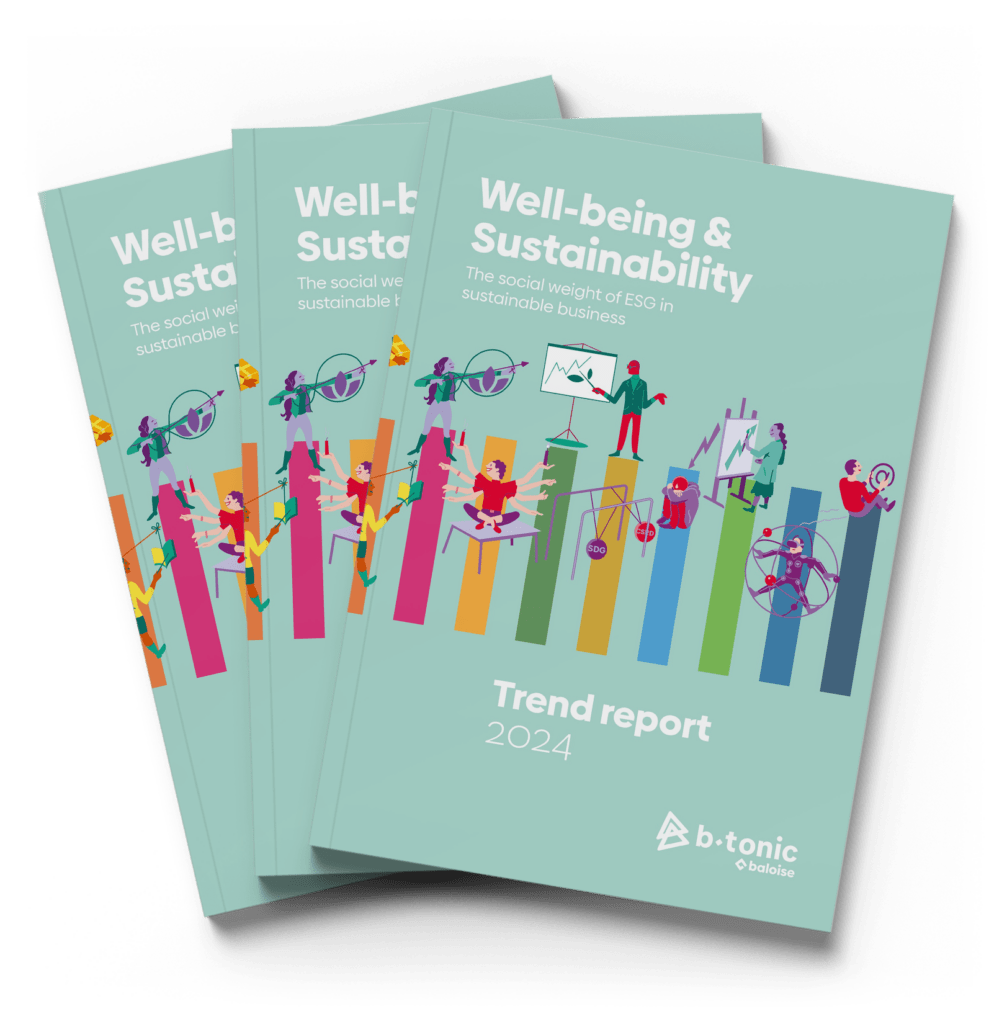Antwerp Management School (AMS), UGent and B-Tonic conducted a large-scale survey of 2286 employees and 327 employers (business leaders and HR professionals) for the sixth time in November/December 2021. For the very first time, this shows a positive impact of the pandemic on our professional well-being. Whereas in 2021, more than half of respondents still indicated that the crisis had a negative impact on their mental health, according to the latest results, this is down to 39%. Even better: 1 in 3 indicate a positive effect. What elements can tip our mental scales to the right side?
Rewatch the webinar following our research here:
Autonomy, dialogue and resilience as magical ingredients
Importance of embedding individuals
Striking results, compared to Sciensano’s most recent health survey, which indicate that mental well-being has never been worse since the start of the pandemic. Prof Vangronsvelt offers a possible explanation: “It is quite possible that ‘work’ is the crucial factor here. We study the impact of the pandemic on workers; Sciensano surveys all adults, including students, people without jobs, etc. Possibly it is precisely the embedding of a person in a bigger picture (an organisation; with colleagues, structure, meaningful contributions) that makes a big difference in terms of the impact of the crisis on mental well-being. It is also known that young adults in particular have a very difficult time mentally – a group minimally represented in our survey.”
Work motivation takes blows
But even in the workplace, it is not all good news: 3 out of 4 employers are still worried about the mental well-being of their employees. And that is not unjustified. Although there was a net decrease in the number of workers experiencing a negative impact of the pandemic on mental wellbeing, nearly 1 in 5 (18%) still reported feeling mentally unwell. Job satisfaction also deteriorated for 1 in 3. The drag of the crisis and accompanying measures probably plays a role here.
Hybrid working works
For a majority of about 6 in 10 (57%), working from home is beneficial for the work-life balance (compared to 27% negative). “The women surveyed are clearly more positive towards teleworking than the men,” knows professor of labour economics Stijn Baert (UGent) who co-analysed the employee survey. “62% of them suspect a positive effect on efficiency versus 49% of men. 61% of women suspect a positive effect on work-life balance versus 51% of men.” However, areas of concern remain. Professor Baert: “3 in 10 fear a negative effect on promotion opportunities. 5 in 10 fear a negative effect on connectedness with the employer and 6 in 10 fear a negative effect on connectedness with colleagues.”
Source: press release AMS – January 17th 2022


